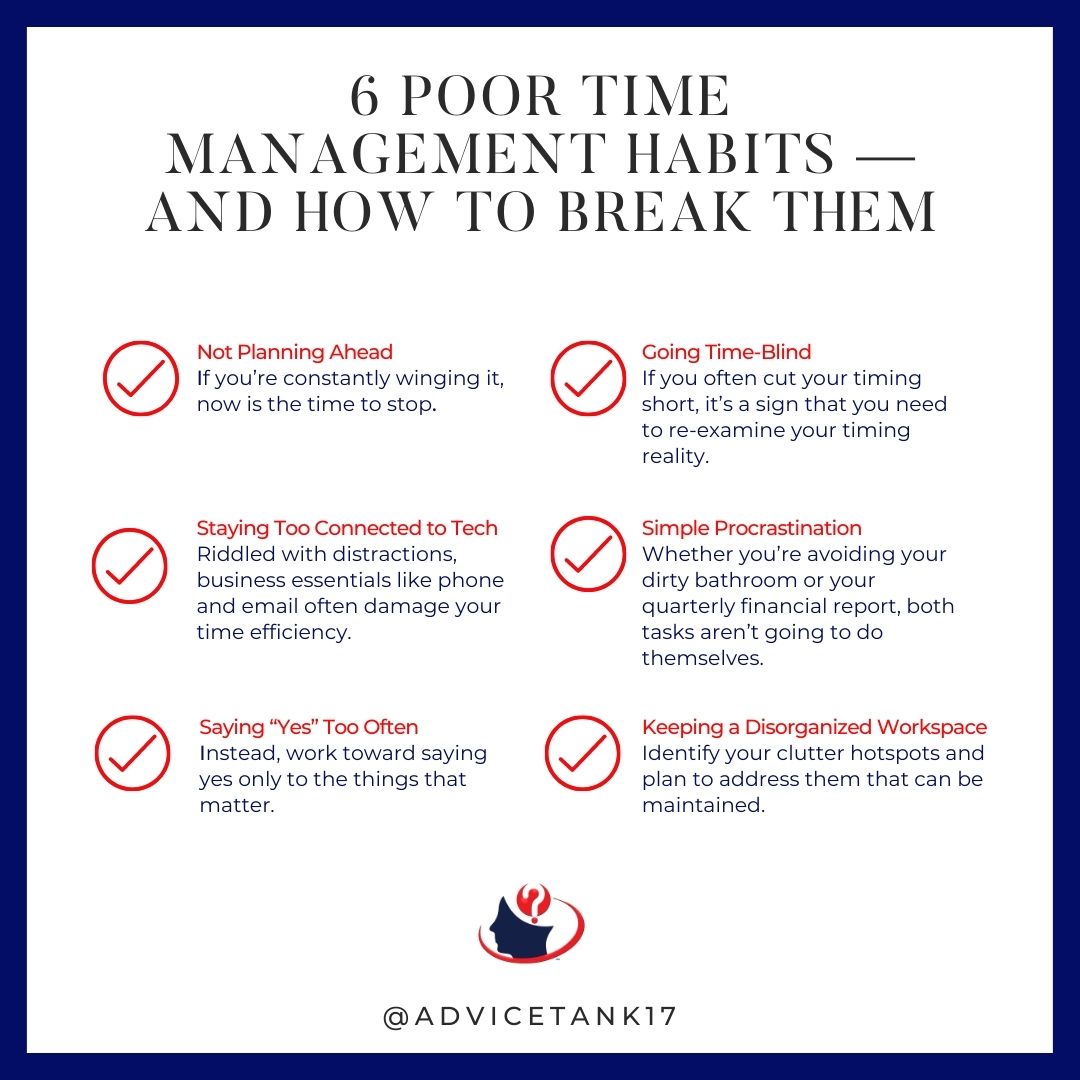Most people don’t get formal training on managing their time. And while a standard base level education would be ideal, that’s not reality.
If your habits could use a revamp, consider these six poor time management behaviors and how to finally fix them for good.
1. Not Planning Ahead – Having a plan doesn’t mean that you have to be rigid. A plan can simply give you guidance and the ability to think before you act. Take time each evening to review the next day’s tasks and responsibilities. Review your calendar or schedule to see if there are any specific due dates or goals to consider. In the morning, you’ll already have a head start on your day, simply because you’ve planned.
2. Staying Too Connected to Tech – Review your digital device habits and see if you can change your habits to improve your time management. Consider putting off checking email until a scheduled time. Instead, place your phone on the charger in do-not-disturb mode while you’re working on your top priorities. Then, check in with your phone’s usage reports to identify your weak spots and change your habits accordingly.
3. Saying “Yes” Too Often – Resist the urge to say yes to requests right away. Instead, ask questions about the opportunity, log details, and grasp the time commitment required. Then, make a practice of getting back to the requestor after you confirm your availability and interest. Your interest level in a project often influences your effectiveness and productivity, so be picky when you can.
4. Going Time-Blind – If you often cut your timing short, it’s a sign that you need to re-examine your timing reality. Start by timing your tasks to assign an average to your usual activities. Then, consider potential variables that may come along. Once you’ve identified trends, use these factors when you plan out your day or commit to deadlines. Use timers and alarms to help you identify the passage of time, especially when tasks are contingent on one another.
5. Simple Procrastination – Tackle your least favorite tasks head-on by committing to doing them first. When you do the most challenging, most unenjoyable job first, every task afterward seems even easier. So schedule your day around accomplishing unpleasant tasks as priority number one.
6. Keeping a Disorganized Workspace – Identify your clutter hotspots and plan to address them that can be maintained. Commit to using your workspace only for work to reduce unnecessary clutter and distraction. Doing so can help you maintain focus when you identify your desk space as a work-only zone.

Recent Comments